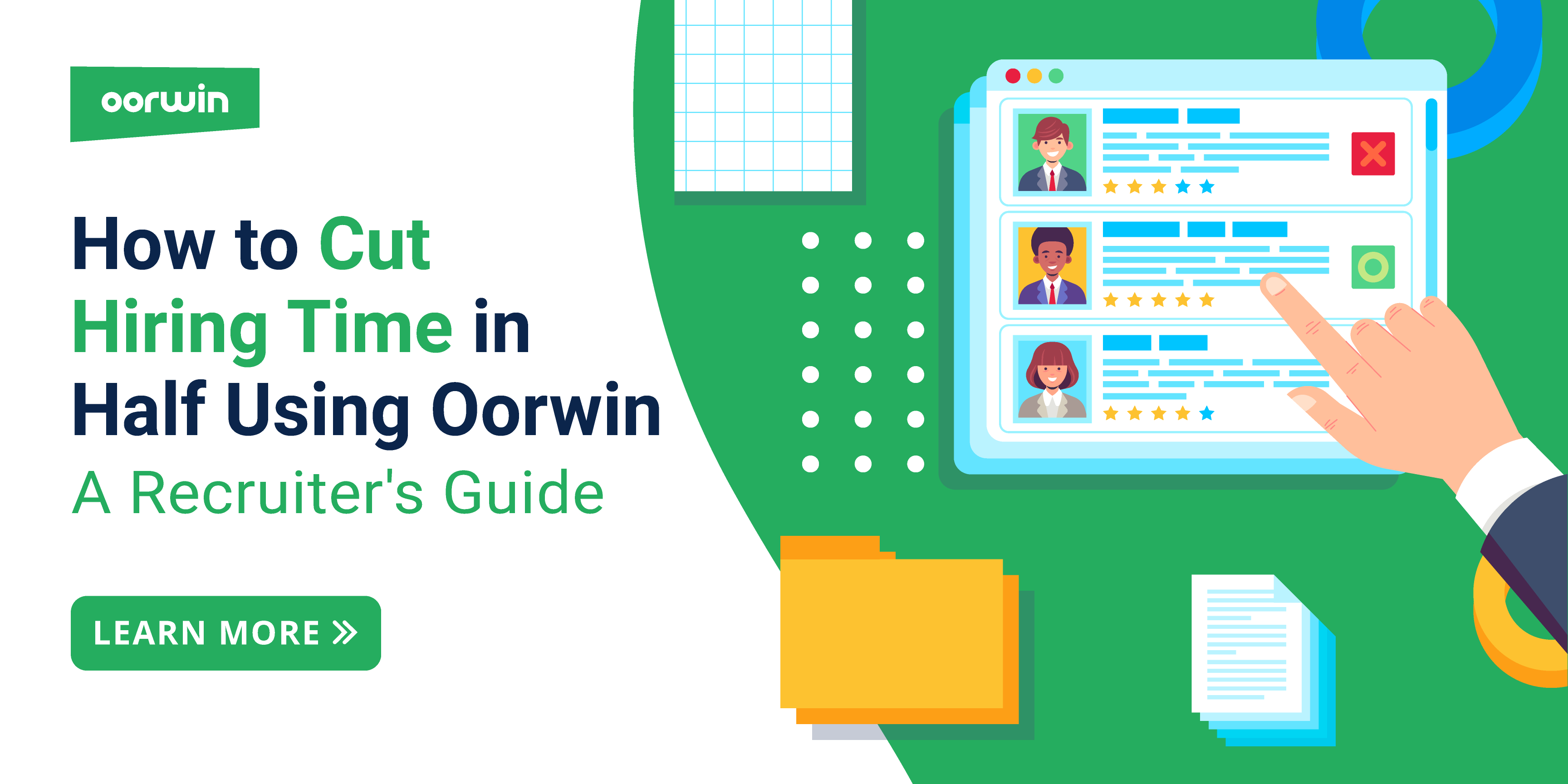Tips for a Successful Virtual Interview | Oorwin
Oorwin
8min read / 28 Apr 2023

Related Articles
What is a Virtual Interview?
The virtual interview is a modern recruitment method that allows employers to screen, assess, and engage with candidates remotely using digital tools and platforms. With the rise in remote work and globalization, virtual interviews have become increasingly popular, allowing organizations to access a broader talent pool while saving time and resources. Virtual interviews typically take place over video conferencing platforms like Zoom, Skype, or Microsoft Teams, enabling real-time interaction between employers and candidates from anywhere in the world.
Advantages of Conducting Virtual Interviews
Apart from preventing the spread of COVID-19, virtual interviews offer several advantages. They are convenient for interviewers and candidates, requiring less preparation. Virtual interviews create a comfortable environment for candidates, resulting in more authentic responses. They provide flexibility in scheduling, accommodating candidates with full-time jobs or locations in different time zones. This benefits remote positions or roles outside the interviewer’s physical area, expanding the talent pool and facilitating global hiring.
Best Practices to Ace Your Virtual Interview Process
Maximize your success in the virtual interview process with meticulous preparation and effective communication strategies tailored for the digital realm. Consider implementing these top strategies for your upcoming virtual interviews with prospective candidates:
Prepare for the Interview
Thorough preparation is vital to conducting a successful virtual interview. Review the job description, requirements, and the candidate’s resume and application materials. Familiarize yourself with their skills, experiences, and accomplishments. Researching their online presence, including social media profiles and professional portfolios or websites, is also helpful.
Choose the Right Platform
Select a reliable video conferencing platform that best suits your organization’s needs. Consider aspects such as user-friendliness, integration with current systems, and the capability to capture the interview for later review when selecting a platform. Popular platforms include Zoom, Skype, and Microsoft Teams, among others.
Test Technology and Equipment
Before the interview, ensure your camera, microphone, and internet connection function properly. To minimize distractions, check your interview space’s lighting, sound quality, and background. It’s beneficial to acquaint yourself with the platform’s capabilities, like screen sharing and chat functions, to ensure you can utilize them effectively if required during the interview.
Set Clear Expectations
Communicate with the candidate about the logistics of the virtual interview, including the date, time, and platform. Please provide them with any necessary login information or instructions for downloading software. Explain the interview format, duration, and who will be present so they know what to expect.
Prepare the Interview Questions Beforehand
Develop a list of relevant, open-ended questions that align with the job requirements and assess the candidate’s skills, experiences, and cultural fit. You may also want to include behavioral or situational questions to gauge their problem-solving abilities and decision-making process.
Here are some example interview questions to prepare beforehand:
- Can you describe a specific project where you utilized your key skills to achieve a successful outcome? What challenges did you face, and how did you overcome them?
- How do you handle competing priorities and deadlines in a fast-paced work environment?
- Tell us about a time when you had to collaborate with a difficult team member. How did you manage the situation and ensure a positive outcome?
- Describe an instance where you had to make a critical decision under pressure. What factors did you consider, and how did you decide?
- How do you align your work with an organization’s values and culture? Can you explain how you have fostered a positive work environment?
Be Mindful of your Body Language
During the virtual interview, maintain eye contact by looking at the camera rather than the screen, creating a sense of connection with the candidate. Sit straight, smile, and use natural gestures to convey attentiveness and engagement.
Conduct the Interview
Begin by introducing yourself and other interviewers. Explain the agenda, and reiterate the ground rules or expectations. Ask your prepared questions, allowing time for the candidate to respond fully. Encourage open dialogue and active listening.
Take Notes
Keep a record of the candidate’s responses, as well as your impressions and observations. These notes will be valuable in evaluating their fit for the role and comparing them to other candidates.
Observe and Evaluate the Candidate Carefully
Pay attention to not only the candidate’s answers but also their demeanor, body language, and overall communication skills. Consider how well they articulate their thoughts, demonstrate enthusiasm for the role, and display adaptability in a virtual environment.
Follow-up with Next Steps
At the end of the interview, inform the candidate of the next steps in the hiring process and provide a timeline for when they can expect to hear back from you. Send a follow-up thank-you email expressing gratitude for the candidate’s time and reaffirming their interest in the role.
Master the Virtual Interview Process with Oorwin
Oorwin is an end-to-end recruitment platform that streamlines the hiring process by integrating Applicant Tracking System (ATS), Customer Relationship Management (CRM), and Human Resource Management System (HRMS) capabilities. Utilize Oorwin with various integration with video interviewing platforms to optimize your virtual interview process, from scheduling and communication to candidate evaluation and onboarding.
Frequently Asked Questions
How to evaluate candidates during a virtual interview?
Assess candidates’ responses, communication, body language, and adaptability in a virtual interview. Observe their articulation, enthusiasm, and relevant skill examples. Use a standardized evaluation form for consistency and fairness in candidate assessment.
What are practical interview questions for virtual interactive interview ?
Questions for virtual interviews should assess the candidate’s skills, experiences, and fit for the role. Some examples include:
- How have you adapted to working remotely or in a virtual environment?
- Can you provide an example of a time when you successfully collaborated with a remote team to complete a project?
- How do you manage your time and prioritize tasks when working remotely?
- Describe a situation where you had to overcome a challenge while working remotely. What was the challenge, and how did you handle it
How to maintain communication with candidates after a virtual interview?
Maintaining post-interview communication keeps candidates engaged and informed. Send follow-up emails, provide hiring updates, offer constructive feedback, and communicate the following steps, such as reference checks or onboarding, as appropriate.
Popular Articles..
Blog

7min read / 25-Jun-2025
Master Effective Interview Techniques with Oorwin: A Step-by-Step Recruiter’s Guide
Blog
Blog
Get the latest Oorwin releases, updates, success stories & industry news
 Back
Back
